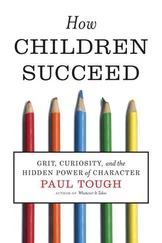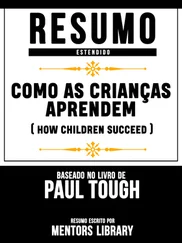In exchange for the services the agency provides, you will give up some freedom. The agencies you work for may have fixed pay rates for each language pair, or may ask you to give discounts on large projects; of course it’s up to you whether to accept or reject the agency’s terms. When an agency becomes a regular client, you want to keep them happy, so it will be hard to say “No!” when they call you on Friday afternoon with a big project due Monday, disrupting your planned ski trip or home improvement project. Also, agencies vary in quality. While a good agency can be an excellent source of ongoing work and can allow you to spend a maximum amount of your time doing translation, not all agencies live up to these standards. An agency may claim (rightly or wrongly) that you did a substandard job on a project for them, and then ask for or just impose a “discount” on the payment you agreed on. Or, an agency may not have much cash in reserve, and might not be able to pay you if the end client doesn’t pay them. Agencies also have their own set payment terms, and in most cases the terms aren’t negotiable. For example, agencies in the U.S. generally pay within 30 days from the date of the invoice or 30 days from the end of the month, while agencies in Europe take longer to pay, sometimes as long as 60 days from the end of the month or 90 days from the date of the invoice.
3.7.2 Working for direct clients
The other main option for a freelancer is to work for direct clients, meaning working directly for translation customers without a “middleman” involved. A direct client might be a medical device company that markets its products overseas, a patent law firm that handles international patent filings, a university that needs a multilingual website, or an individual who needs translations of official documents. The income potential of working for direct clients is attractive; in many cases you may be able to earn double the amount that you earn from an agency. Direct clients may also be willing to let you act as a “mini-agency,” subcontracting work to other translators you know and keeping a percentage for yourself to cover your administrative overhead. With a direct client the translator is often more in control of the payment terms involved; for example, the translator might be able to request payment in advance for certain services, an option that almost never exists when working through a translation agency.
There are some disadvantages in working for direct clients as well. When you work through an agency, it should be the project manager’s job to explain the ins and outs of the translation process to the client. When you work for a direct client, for better or worse there’s no one between you and the client. In cases involving a small project such as a birth certificate translation, it might take more time to explain the process to the client than it does to complete the translation. If the client has an unrealistic deadline, keeps changing his/her mind about the project specifications, or wants additional services such as desktop publishing, it’s up to you as the translator to deal with it. If the direct client doesn’t pay, there’s no one else to lean on for the money—you simply have to handle it yourself, or hire a collection agency if things turn really sour. All of these aspects are worth considering before you decide whether to work through agencies or for direct clients.
Somewhere between an agency and a direct client is a small but growing group of freelance project managers. These individuals function somewhat like one-person translation agencies, and may handle outsourced translation for a larger corporation. This style of business combines some of the advantages and disadvantages of the agency/direct client model. Probably the most significant item to discuss up front is what happens if the end client doesn’t pay or is late in paying the project manager who hires you, since unlike a large translation agency, this individual probably doesn’t have the cash reserves to cover a large bill that goes unpaid.
3.8 Agencies and direct clients: not better or worse, just different
Some translators work only with agencies, some only with direct clients, and some work with a mix. My nutshell analysis is that agencies and direct clients aren’t better or worse, they’re just different; there are great agencies and problematic direct clients, and there are great direct clients and problematic agencies. To summarize the pluses and minuses of each:
Translation agencies are great, because:
• If the agency does its job right, you just translate. You are freed from such tasks as explaining to the client why the words aren’t in the same order in the translation as they are in the original document, or explaining to the client that words like “software” and “information” are not pluralized as “softwares” and “informations” in English.
• If the agency likes you, they will keep you busy. They will fill your inbox with requests, rather than the other way around. They have a sense of what you do, and what the constraints of your job are. An agency knows that you can’t translate 25,000 words in three days, and that most translators work only in one direction, and that conference interpreters are generally reimbursed for travel and lodging expenses, and so on.
But translation agencies have their drawbacks, such as:
• In the agency market, a translator can only compete on quality to a certain extent. It’s in an agency’s best interest to use the cheapest translator whose quality and reliability fit the agency’s purposes. An agency that really likes you might pay you 10% more than what they pay their other translators, but they’re not going to pay you 100% more, whereas a direct client might.
• They can’t afford to be loyal to you. A direct client might shuffle deadlines, pay rush printing charges or have their own staff work on a weekend in order to snag a translator who they really love. But agencies rarely will: if you’re not available within a reasonable amount of time, they’ll call the next person on their list.
• Some agencies are not transparent about their teams and processes. When you work on a large project for an agency, the agency may refuse to let you communicate with the other translators. They may decline to tell you whether your work is being proofed a) by another translator in your language pair, b) by a speaker of the target language only or c) not at all.
Direct clients are great, because:
• At a certain point, you will reach “terminal velocity” in the agency market. You will be charging as much as even the highest-paying agencies will pay, and you can’t increase your speed beyond a certain point if you want to maintain quality. So, the next logical place to look is the direct client market, where the price ceiling is much higher.
• The business relationship is between you and them. Normally, you can communicate either with the person who wrote the source document or the person who is going to use the target document. In 13+ years of working with agencies, I’ve been in contact with the document’s writer or end user exactly zero times. To put it diplomatically, this model has its problems.
• Quality is a major competitive advantage. In the agency market, quality is a competitive advantage, but only within the constraints of the agency’s budget; some direct clients may feel that they’re willing to pay whatever it takes to get a really good translator for their mission-critical documents.
• Questions and feedback are not only possible, but welcome. In the agency model, there’s pretty much an impenetrable membrane between the translator and the end client; in the direct client market, the back-and-forth flow is what makes the work more satisfying and the translation more accurate and more readable.
Читать дальше
![Коринн МакКей How to Succeed as a Freelance Translator [calibre 3.46.0] обложка книги](/books/402693/korinn-makkej-how-to-succeed-as-a-freelance-transl-cover.webp)


![Джон Ирвинг - Našlė vieneriems metams [calibre]](/books/384320/dzhon-irving-naŠle-vieneriems-metams-calibre-thumb.webp)
![Джонатан Димблби - Barbarossa - How Hitler Lost the War [calibre]](/books/385421/dzhonatan-dimblbi-barbarossa-how-hitler-lost-the-w-thumb.webp)







